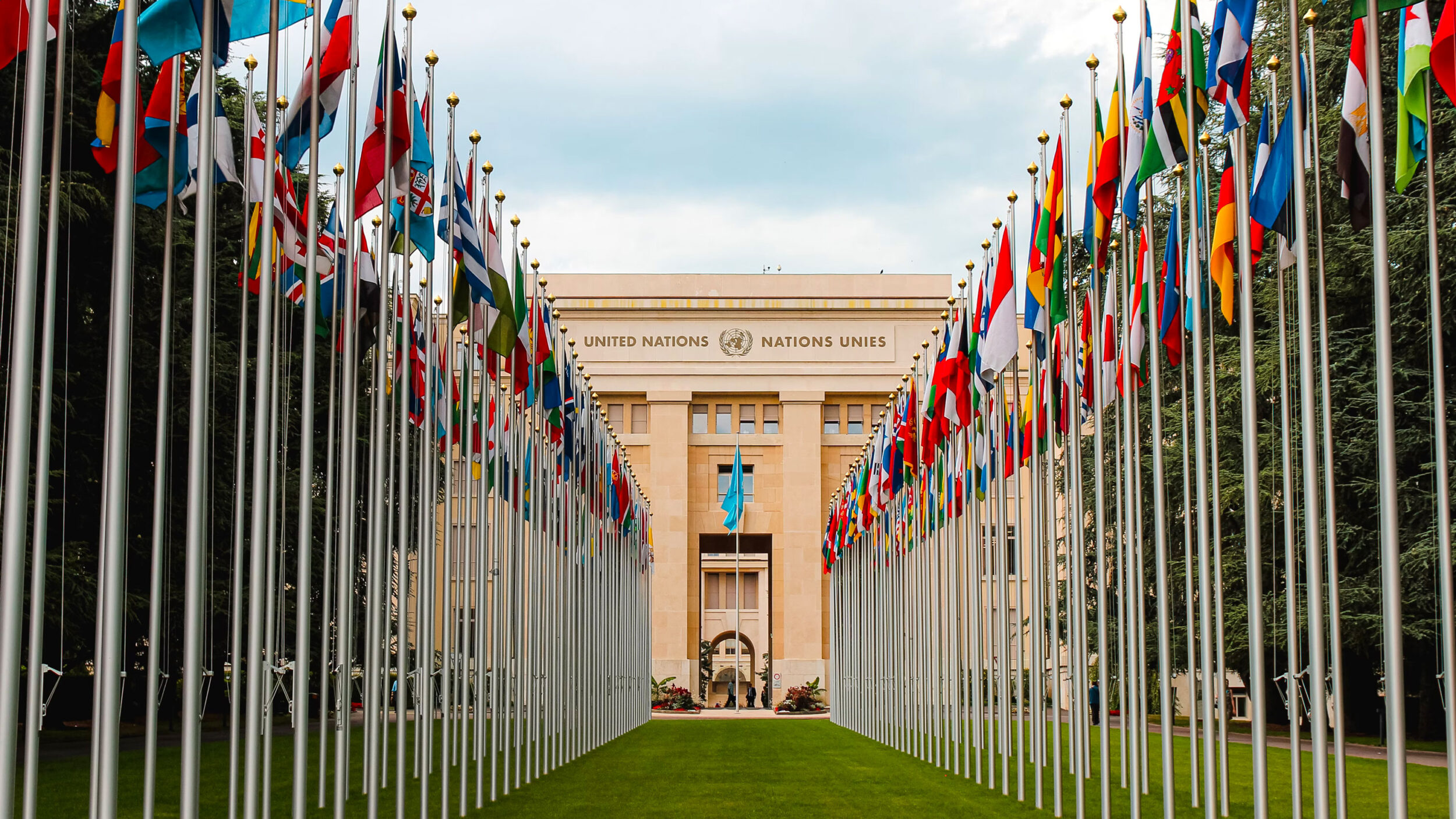This website uses cookies so that we can provide you with the best user experience possible. Cookie information is stored in your browser and performs functions such as recognising you when you return to our website and helping our team to understand which sections of the website you find most interesting and useful.
Climate Leadership in the Eleventh Hour
Estimated reading time: 6 minutes, 29 seconds

In this series of blog posts, Brainnwave CEO Steve Coates reflects on his attendance at COP26, the impacts on our industry and the implications for other business leaders who are thinking about the practicalities of decarbonization.
Accenture shared insights from their collaboration with UNGC, in which they surveyed 1,230 CEOs across 130 countries and 21 industries, including more than 100 in-depth one-to-one CEO interviews. The study is the most extensive program of CEO research on sustainability.
This was my last event at COP26, and it was good to end the fortnight with a pulse check of the world’s business leaders to get a sense of reality beyond grand targets and ambitions.
Speakers
- Peter Lacy, Global Sustainability Services Lead & Chief Responsibility Officer, Accenture
- Sanda Ojiambo, CEO & Executive Director–UN Global Compact
- Solange Ribeiro, Deputy CEO, Neoenergia
- Amit Sinha, President, Group Strategy, Mahindra Group
- Julie Sweet, Chair & CEO–Accenture
- Marjorie Yang, Chairman & CEO, Esquel Group
It seems that the future has arrived all at once
It can be misleading to generalize, but one of the headlines shared was in general, CEOs do believe that the goals set in Paris for 2030 and 2050 are within our grasp. However, there are many complex and challenging problems that no one has answers for:
- CEOs are primarily unprepared to cope with climate-induced destruction.
- Affordability remains one of the biggest challenges.
- Two thousand companies are setting science-based climate targets, but more is needed. The announcement at COP26 about the formation of the IBSS will help create a single ESG standard from next year that is auditable and comparable.
- The window is closing and, unless significant investment is made in the next two years, 2030 targets will never happen.
- More CEOs than ever before in previous studies say they are experiencing the physical impacts of climate change. One example given was from the insurance sector who have indicated that entire parts of the world will not be able to insure against crop devastation in the next few years.
- 49% of CEOs are grappling with supply interruptions due to extreme weather events; they are now a top business risk.
- Half of the food and beverage industry CEOs are concerned about their ability to access natural resources due to extreme weather, highlighting the threat of climate on global food supplies.
- All have noticed that something is changing and affecting their business.
- The impact of the global pandemic, unsurprisingly, has affected the global south disproportionately. The focus is still mainly on survival, so there is very little management time to focus on climate initiatives. 40% of CEOs in the global south had to reduce sustainability budgets vs 24% in the north, nearly twice as many.
- However, 72% of CEOs globally agree that sustainability remains an immediate priority as they deal with the fallout of the COVID-19 pandemic.
Pete shared a quote he had heard, which resonated: “There is no silver bullet to solve this problem, but there are lots of silver buckshot, and we need to fire everything at it.” Over the last fortnight, I heard some encouraging signs from business leaders that there is plenty of buckshot being deployed!
Some more encouraging signs from the survey were:
- 65% of CEOs say they have started building net-zero business models, 25% are at an advanced level
- 41% transformation CEOs increased their budgets for sustainability during the pandemic up by 25% on average
One of the recurring themes throughout all sessions is the role of technology. In the UNGC study, CEOs note that there is no successful climate agenda without adequate data management. Data is at the core of any effective climate response, “it is important that we get into impact measurement in the near future. Data is a game-changer in this context. To measure impact and manage risk, we need to have access to good data” Christian Sewing, CEO at Deutsche Bank AG.
Which technology solutions will have a significant impact on sustainability in your industry within the next five years?

Image from Accenture UNGC CEO Study on Sustainability in 2021
So what was the mood of the panel during the discussion?
- Too much government leadership is politically focused rather than building global platforms to promote climate change initiatives. Governments need to put this at the top of their agendas.
- There is far more awareness in global governments that the mood of the population is demanding change.
- There are too many other barriers that business is focused on, such as trade barriers. Without addressing these broader issues, it will be difficult to focus attention on climate change initiatives.
- Key achievements at COP26 from the panel perspective: Announcement on deforestation is positive, India’s announcement to be net-zero by 2070 is positive, the phase-out of coal power is positive.
- We’re definitely seeing more granular discussions across the board, not just the high-level targets.
I was particularly interested in the comments from Solange Ribeiro, Deputy CEO, Neoenergia in Brazil. Brazil is a heavily regulated energy sector where 80% of energy is renewable. Brazil has the perfect environment for renewable energy (sun, onshore wind) and sees an opportunity to become a global leader. In Brazil, renewable energy is significantly price competitive to other forms and does not need government subsidies.
Amit Sinha, President, Group Strategy, Mahindra Group, also sees India playing a crucial global role. Known for frugal innovation, India can be a big player in developing the technologies that are needed. The pandemic has helped in many ways by breaking down international barriers and enabling online partnerships and collaborations, government to government, businesses in the global north to the global south.
From a business perspective, one of the significant remaining barriers is how performance is measured and perceived. Whilst there has been some movement towards “green funds”, where investors want more than just financial returns, a vast majority of the capitalist infrastructure is still driven by shareholder returns. People don’t get bonuses if a company doesn’t perform, and economic performance will dictate how funds flow.
One of the other significant themes discussed was the role of the private company, and I really enjoyed listening to what Marjorie Yang, Chairman & CEO, Esquel Group, had to say. In other talks over the fortnight, the role of the private company was seen as a potential black hole to be wary of. Assets that are too difficult to transition to net zero may move out of public ownership into the black hole of private ownership, where reporting requirements are not as rigorous. Marjorie had a different take on her role as a CEO of a private company. She believes that as she is not under the pressure of reporting quarterly performance to the market, she has more opportunities to experiment with ideas to help them achieve a Net-Zero pathway. I hope that Marjorie is not an exception to the vast majority of CEOs of private businesses!
Pete closed the session with a quote from Winston Churchill, which I think is an apt reminder that whilst there is undoubtedly a difficult, complex and challenging road ahead, there are reasons to be hopeful:
The pessimist sees the difficulty in every opportunity, the optimist sees the opportunity in every difficulty.
I am very grateful to my hosts at Accenture for inviting me to be part of COP26, to learn about how business is rising to the challenge and to have the opportunity to share my reflections within my organization, Brainnwave. There is much passion in the Brainnwave team to be part of the solution to climate change. The last two weeks have helped me form ideas on how we can best deploy our skills and capabilities to enable our clients and partners to effectively adapt, transform their businesses, and have a better chance of achieving our part in the race to Net-Zero.

